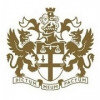Filter interviews by
Sixpl Interview Questions and Answers
Sixpl Interview Experiences
1 interview found
Is higher education is important for success or not
(2 Questions)
- Q1. Why we should hire you
- Q2. Introduce yourself
Interview Preparation Tips
Business Development Executive Interview Questions asked at other Companies
Top trending discussions






Interview questions from similar companies

I was interviewed in Jan 2025.
(2 Questions)
- Q1. Tell about your experience
- Ans.
I have 5 years of experience in risk management, including analyzing data, identifying potential risks, and implementing strategies to mitigate them.
5 years of experience in risk management
Proficient in analyzing data to identify potential risks
Implemented strategies to mitigate risks
Strong understanding of risk assessment techniques
Experience in developing risk management policies and procedures
- Q2. JD questions
(2 Questions)
- Q1. Can you work under pressure and night shifts
- Ans.
Yes, I have experience working under pressure and night shifts.
I have previous experience working in high-pressure environments where quick decision-making was required.
I am able to stay focused and maintain productivity during night shifts.
I have a flexible schedule and am willing to work night shifts as needed.
- Q2. Tell me about yourself and tell me about your exp how you can contribute
- Ans.
I am a detail-oriented risk management analyst with 5 years of experience in identifying and mitigating potential risks.
I have a strong background in conducting risk assessments and developing risk management strategies.
I am proficient in using data analysis tools to identify trends and patterns that could indicate potential risks.
I have experience working closely with cross-functional teams to implement risk mitigatio...

I applied via LinkedIn and was interviewed in Dec 2024. There was 1 interview round.
(6 Questions)
- Q1. Explain your last project and your role in this project
- Ans.
Led a team in implementing a new CRM system for a large retail company
Managed project timeline and deliverables
Collaborated with stakeholders to gather requirements
Provided training and support to end users
Ensured successful implementation and user adoption
Improved customer data management and analytics
- Q2. Overall working experience with other companies
- Ans.
I have over 10 years of experience working with various companies in consulting roles.
Managed client relationships and delivered successful projects on time and within budget
Led cross-functional teams to drive business growth and improve operational efficiency
Developed and implemented strategic plans to address client needs and achieve objectives
- Q3. Why choose kafka over MQ ? what challenges you faced during kafka implementation ?
- Ans.
Kafka is chosen for its scalability and fault tolerance compared to MQ.
Kafka offers higher throughput and lower latency compared to MQ.
Kafka is horizontally scalable, allowing for easy expansion as data volume grows.
Kafka provides fault tolerance through replication of data across multiple brokers.
Challenges faced during Kafka implementation may include setting up proper configurations, ensuring data consistency, and m...
- Q4. Monolith to microservice migration journey ? what all decisions needs to be taken and how the entire migration took place.
- Ans.
Monolith to microservice migration involves breaking down a large application into smaller, independent services.
Evaluate the current monolith architecture and identify the components that can be decoupled into microservices.
Define the boundaries of each microservice to ensure they are cohesive and loosely coupled.
Choose the right technology stack for each microservice based on its requirements and scalability needs.
Im...
- Q5. If worked for RestAPI ? what is the use of swagger ? what is the content of Swagger documentation ?
- Ans.
Swagger is a tool used for documenting and testing REST APIs.
Swagger is used for documenting REST APIs by providing a user-friendly interface to view and interact with API endpoints.
It allows developers to easily understand the functionality of an API, including available endpoints, request/response formats, and authentication methods.
Swagger documentation typically includes information such as API endpoints, request p...
- Q6. Only this was asked to me , and rejected
Interview Preparation Tips

I applied via Referral and was interviewed in Dec 2024. There were 2 interview rounds.
(2 Questions)
- Q1. What are derivatives in finance?
- Ans.
Derivatives in finance are financial instruments whose value is derived from the value of an underlying asset.
Derivatives can be used for hedging against risk, speculating on price movements, or gaining exposure to assets without owning them.
Common types of derivatives include options, futures, forwards, and swaps.
Options give the holder the right, but not the obligation, to buy or sell an asset at a specified price be...
- Q2. What are the different types of derivatives?
- Ans.
Derivatives are financial instruments whose value is derived from an underlying asset or group of assets.
Types of derivatives include options, futures, forwards, and swaps.
Options give the holder the right, but not the obligation, to buy or sell an asset at a specified price before or on a specified date.
Futures are contracts to buy or sell an asset at a future date for a price agreed upon today.
Forwards are similar to...
(4 Questions)
- Q1. What are the details of the stock market and its various products?
- Ans.
The stock market is a platform where investors can buy and sell shares of publicly traded companies.
Stocks represent ownership in a company and can be bought and sold on stock exchanges like NYSE and NASDAQ.
Bonds are debt securities issued by companies or governments to raise capital.
Mutual funds pool money from multiple investors to invest in a diversified portfolio of stocks, bonds, or other securities.
Options give i...
- Q2. Balance sheet,profit &loss account
- Q3. Journal entries
- Q4. Option in detail, economic crisis,
Interview Preparation Tips

Engineer Trainee Interview Questions & Answers
London Stock Exchange Groupposted on 2 Oct 2024
I applied via Campus Placement and was interviewed in Sep 2024. There were 5 interview rounds.
Round 1 was aptitude round, it consisted of java and c++ snippets and we had to guess the output. Apart from that there were problems on speed, velocity, distance and time. Problems on word-letter patterns were also asked. The aptitude round had 30 questions and time given was 30 minutes.
Aptitude round was the only elimination round. The next following 4 rounds were non-elimination rounds. Coding test included 3 questions - 1 and half hour was given to solve the same. It is fine if you don't perform well here, since it is a non-elimination round. But try to solve 1 and half or 2 questions atleast. The questions were mainly based on 1d arrays, 2D arrays, strings and string arrays.
(11 Questions)
- Q1. Introduce yourself.
- Ans.
I am a recent graduate with a degree in engineering, eager to learn and grow in the field.
Recent graduate with a degree in engineering
Passionate about learning and growing in the field
Eager to apply theoretical knowledge to practical projects
- Q2. Difference between Structure and object oriented languages
- Ans.
Structure languages focus on procedures and functions, while object-oriented languages focus on objects and classes.
Structure languages use functions and procedures to manipulate data
Object-oriented languages use objects and classes to encapsulate data and behavior
Structure languages are more procedural in nature, while object-oriented languages are more modular and reusable
Examples of structure languages include C and...
- Q3. Explain of OOPS concepts and their real life examples.
- Ans.
OOPS concepts are fundamental to object-oriented programming and include inheritance, encapsulation, polymorphism, and abstraction.
Inheritance: A child class inherits properties and behaviors from a parent class. Example: Animal class can be a parent class with child classes like Dog and Cat inheriting its attributes.
Encapsulation: Bundling data and methods that operate on the data into a single unit. Example: A car ob...
- Q4. What is static keyword and it's usage.
- Ans.
The static keyword in programming is used to declare variables, functions, or classes that retain their values or state throughout the program's execution.
Static variables retain their values between function calls
Static functions can only be accessed within the same file
Static classes cannot be instantiated and have limited visibility
Static keyword can also be used in C++ to declare class members shared among all inst
- Q5. System architecture diagram for web application project.
- Ans.
The system architecture diagram for a web application project visually represents the components and their interactions.
Include components like client-side interface, server-side application, database, and external services
Show how these components communicate with each other
Consider scalability, security, and performance in the design
Use standard symbols and notations for clarity
- Q6. Access Modifiers in java
- Ans.
Access modifiers in Java control the visibility of classes, methods, and variables.
There are four types of access modifiers in Java: public, private, protected, and default.
Public: accessible from any other class.
Private: only accessible within the same class.
Protected: accessible within the same package and subclasses.
Default: accessible only within the same package.
Example: public class MyClass { private int myVar; p
- Q7. What OOPS concepts are implemented in my project
- Ans.
Encapsulation, Inheritance, Polymorphism, Abstraction
Encapsulation: Data hiding and bundling of data with methods. Example: Using private variables and public methods.
Inheritance: Reusing code and creating a hierarchy of classes. Example: Subclass inheriting properties and methods from a superclass.
Polymorphism: Ability to present the same interface for different data types. Example: Method overloading and overriding.
A...
- Q8. DBMS core concepts
- Q9. Overloading and Overriding
- Q10. Approach to the coding questions asked in coding round.
- Q11. Questions on what is cloud and what are some cloud platforms you know?
A project is assigned to a group of students and we need to come up with an idea on how to implement that project as a team.
(2 Questions)
- Q1. Introduce yourself
- Ans.
I am a recent graduate with a degree in engineering, eager to learn and grow in the field.
Recent graduate with a degree in engineering
Passionate about learning and growing in the field
Eager to apply theoretical knowledge to practical projects
- Q2. Family background
Interview Preparation Tips
Skills evaluated in this interview

Software Development Engineer II Interview Questions & Answers
Pine Labsposted on 11 Oct 2024
I applied via Referral and was interviewed in Sep 2024. There were 3 interview rounds.
(1 Question)
- Q1. This round was purely based on DSA. One question of Leetcode hard difficulty was asked. Question Name - Median of two sorted arrays.
(1 Question)
- Q1. This was low level design round. I was asked to design a system like Redbus. Functional Requirements - 1. user can login/signup on the platform 2. functionality to choose btw different operational routes....
(2 Questions)
- Q1. This round was taken by their Engineering Director. Questions were related to multithreading, types of entity relationships with examples, transaction management in Spring Boot, JVM components, garbage col...
- Q2. Later interviewer asked me to code a multithreading assignment - 1. Create a fixed threadpool of size 10. 2. Submit number of tasks to the threadpool. 3. Return the results from every task and print in mu...
Interview Preparation Tips
- DSA
- LLD
- HLD
- MySQL
- Java
- Spring Boot

I applied via Company Website and was interviewed in Dec 2024. There was 1 interview round.
(6 Questions)
- Q1. Walk me thru your CV
- Q2. Technical questions from Job description
- Q3. Why switching your job?
- Q4. Behavioral Questions
- Q5. Projects and accomplishments
- Q6. How do you align with the role?

(5 Questions)
- Q1. Basic questions on python
- Q2. Difference between list tuple
- Ans.
Lists and tuples are both data structures in Python, but lists are mutable while tuples are immutable.
Lists are enclosed in square brackets [], while tuples are enclosed in parentheses ().
Lists can be modified after creation, while tuples cannot be modified (immutable).
Lists are typically used for collections of similar items, while tuples are used for fixed collections of items.
Example: list = [1, 2, 3] and tuple = (4
- Q3. Area of room 6D
- Ans.
The area of a room can be calculated by multiplying the length by the width.
Calculate the area by multiplying the length and width of the room.
For example, if the length of the room is 10 feet and the width is 12 feet, the area would be 120 square feet.
Make sure to use the same units for length and width when calculating the area.
- Q4. Most emberacing situation u faced in your life
- Ans.
Getting caught cheating on a test in high school
Was copying answers from a classmate during a test
Teacher caught me and called me out in front of the whole class
Felt embarrassed and learned my lesson about cheating
- Q5. Behavior questions like what will u do if this happens

I applied via Campus Placement and was interviewed in Nov 2024. There were 2 interview rounds.
The test will comprise a total of 60 questions, divided as follows: 70% of the questions will focus on finance and accounting, while the remaining questions will cover aptitude and English.
(1 Question)
- Q1. Zero coupon bonds, long-term liabilities, return on equity, debt-equity ratio, captial budgeting and techniques, bonds and its types, debt instruments meaning, collateral, mortgage, spin off, demerger, mer...
Interview Preparation Tips

There were three coding questions.
(5 Questions)
- Q1. Could you provide a thorough explanation of the project?
- Q2. OOps Concepts and question from the technical subjects
- Q3. Why Spring Boot
- Q4. JWT Authentication
- Q5. Docker and Kubernetes
Sixpl Interview FAQs
Tell us how to improve this page.
Interview Questions for Popular Designations
Sixpl Interview Process
based on 1 interview
Interview experience
Interview Questions from Similar Companies
|
Business Development Executive
6
salaries
| ₹2 L/yr - ₹3.2 L/yr |
|
Content Writer
5
salaries
| ₹2.3 L/yr - ₹2.9 L/yr |
|
HR Executive
4
salaries
| ₹1.8 L/yr - ₹3 L/yr |
|
Email Marketing Executive
4
salaries
| ₹2.4 L/yr - ₹3 L/yr |

Infosys

TCS

Wipro

HCLTech
- Home >
- Interviews >
- Sixpl Interview Questions










